MORRISSEY IN CONVERSATION
 THE ESSENTIAL INTERVIEWS
THE ESSENTIAL INTERVIEWS 
Edited by Paul A. Woods
PLEXUS, LONDON

CONTENTS

MORRISSEY NEEDS NO INTRODUCTION

BY PAUL A. WOODS

None of this should have happened, should it?... it was a mistake.
Morrissey, in conversation with Paul Morley
Britains unlikeliest rock n roll star in several decades is also its most essential. If popular culture is to comprise anything other than this years spoonfed pablum, wed best keep taking Steven Patrick Morrissey seriously.
Not that he was ever known by that moniker. Back in the earliest days of the Smiths, the alternately fey/aggressive, shy/histrionic young man with the Oxfam couture style devolved himself down to a single name gatecrashing the ranks of Elvis, Bowie, or any other iconic artist evoked by a single word.
In the frothy world of mid-1980s pop music, the Smiths gritty black-and-white aesthetic was all Morrisseys. In those captured moments of 1960s films/newspapers/TV, he held onto the world that had passed with his childhood: Terence Stamp as the repressed, lovelorn young man in The Collector, on the original cover of What Difference Does It Make?; pools winner Viv Nicholson, spending her way out of poverty and back into it again for Heaven Knows Im Miserable Now; actress Yootha Joyce on Ask, unglamorous but stylish, working class 1960s womanhood personified.
His personal icons were all, like himself, characters trapped in worlds they never made: decadently epicene genius Wilde; doomed and brooding Jimmy Dean; ailing Brit rock n roller Billy Fury, his time long past.
The Smiths brought realism to their romance, and tempered their angst with the lightest of touches. The times were personified in their frontman: rejecting all taints of rock n roll machismo, he played up the social awkwardness of the misfit and the outsider, his gently haunting vocals whooping suddenly upward into a falsetto, clothed in outsize womens shirts, sporting National Health specs or a huge Johnny Ray-style hearing aid. This charming young man was, in the vernacular of the time, the very antithesis of a rockist always knowingly closer to the gentle ironicist Alan Bennett, or self-lacerating diarist Kenneth Williams, than a licentious Mick Jagger or drugged-out Jim Morrison.
In all this, erstwhile personal saviour Johnny Marr who drew his songwriting partner out of an isolated bedroom existence that might have been scripted by Beckett was the perfect collaborator. Together, the Morrissey/Marr axis epitomised rock n roll in the eighties without falling prey to any of its redundant clichs. If This Charming Man was an energising, obliquely English piece of post-Byrds powerpop, then a heartbreakingly sad piece like This Night Has Opened My Eyes soundtracked life as it was and still is lived, as observed by the sympathetic outsider Morrissey. Drawing on the sounds and images of an earlier, more innocent era, Morrissey/Marr plunged deep into the kitchen sink of the soul.
As Morrissey remarked in the earliest Smiths interview in the national music press (with Dave McCullough, then at Sounds), his muse was born out of desperate times. In the post-post-punk climate of the early 1980s, the choking triumvirate of callous Thatcherite economics, Reagans nuclear weapons on Airstrip Ones soil and a war of attrition with the IRA gave very little cause for hope. While the zoot suit and ra-ra dress crowd partied like the last revellers on the Titanic, the nascent indie scene (not that it was known as such then, becoming increasingly lame after the label had stuck) was either jangling away with the Postcard Records bands or consumed with its own insular pessimism.
If the lazy miserabilist tag applied to the Smiths had been at all accurate, they would not have been fronted by one of Englands last great mordant wits. Depression seemingly lifelong, up until his current middle-aged resurgence seems to have acted as a spur, a key to creativity, rather than an entry point into utter despair.
A true pop artist, Morrissey exists to articulate and poeticise what his audience can only feel. If the fits of melancholia described in many earlier interviews drove him close to self-destruction, then his bittersweet lyrical postcards from the brink were solace to many a despairing young soul. Whether Morrisseys words were empathetic enough to make the listener want to hold onto life, or whether they merely accompanied a sad passage from this vale of tears, they still mattered.
Today, his endurance makes nonsense of the suicidal tendencies one contributor (Irish journalist Neil McCormick) believed would make an end of him. A lifetime of melancholia, leavened by wit and humour, has produced one of the most interesting yet accessible repertoires in the history of the pop song. Only its creator can say whether it was worth sticking it out, but for the rest of us, we have a vocal commentator (or should that be commentating vocalist?) who well knows our strange little sadnesses and joys albeit reflected through his own aloof viewpoint.
Morrissey is all but infamous for his estrangement from affairs of the heart and of the flesh. But his vacillation on his early sexual experiences (either non-existent, or so depressing that they led to years of abstinence) is no great contradiction. As the man himself said, back when he was an elderly boy, I wouldnt want to be thought of as Tarzan or Jane or whatever!
For all the chimerical trails he has left regarding his sexuality, this variously (according to who is believed at what particular time) celibate/frustrated heterosexual/bisexual man illustrates the futility of the tick appropriate box approach, when so many of us comprise Heinz 57 Varieties.
Morrisseys much touted and possibly much overplayed celibacy aside, he has been far more directly vocal about the suffering inflicted on animals principally by the meat industry, but also in recent years by medical tests and vivisection. If you agree with vivisection, challenges this morally indignant but stylish man, not averse to leather shoes and belts, go and be vivisected upon yourself.
Some have adopted his animal rights dogma slavishly, but to the observant Morrissey watcher its emblematic of a personal religiosity cultivated in lieu of an absent God, with whom this lapsed Catholic conducts a fluctuating relationship. Lonely, he tells us, to the point of solipsism, only able to truly communicate with other people via song lyrics, the younger Morrissey never accepted the world on its own terms while the older, stronger Morrissey refuses outright.
Some said he was just too sensitive to live, and it seems a wonder the neurosis that fuelled so much of his creativity hasnt destroyed him along the way. Many expected him to go under with the defection of Johnny Marr, his musical life raft.
But, having long since abandoned his northern hometown of Manchester, for years Morrissey hung onto the psycho-geography of his youth as a source of inspiration. British to the core, and patriotic (though non-jingoistic) to boot, our nations traditional rainy bleakness and dark satanic mills were the lifeblood of this young Anglo-Irishman, the son of first generation immigrants. Even the most vicious criminals and nastiest crimes of the 1960s were lyrical succour to the melancholic songbird. (Think of Suffer Little Children, an extraordinary musical edit of Emlyn Williams study of the moors murders that blighted Morrisseys childhood,

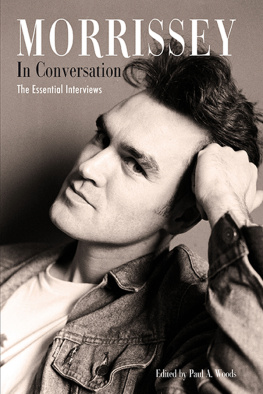
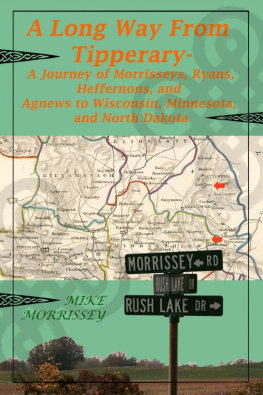
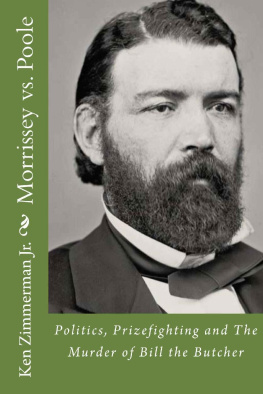
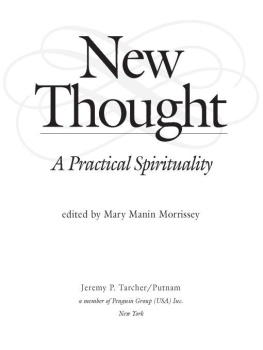
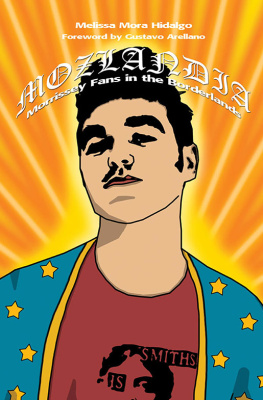
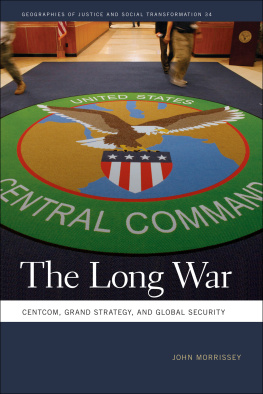

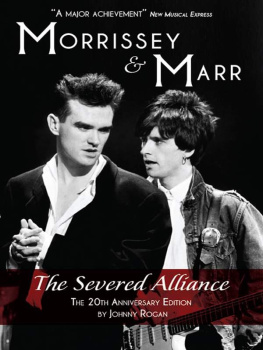

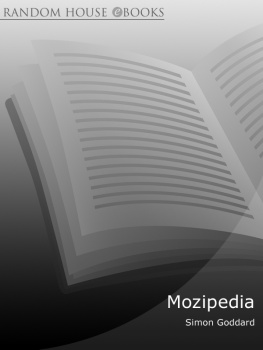
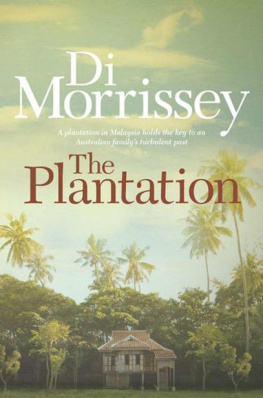

 THE ESSENTIAL INTERVIEWS
THE ESSENTIAL INTERVIEWS